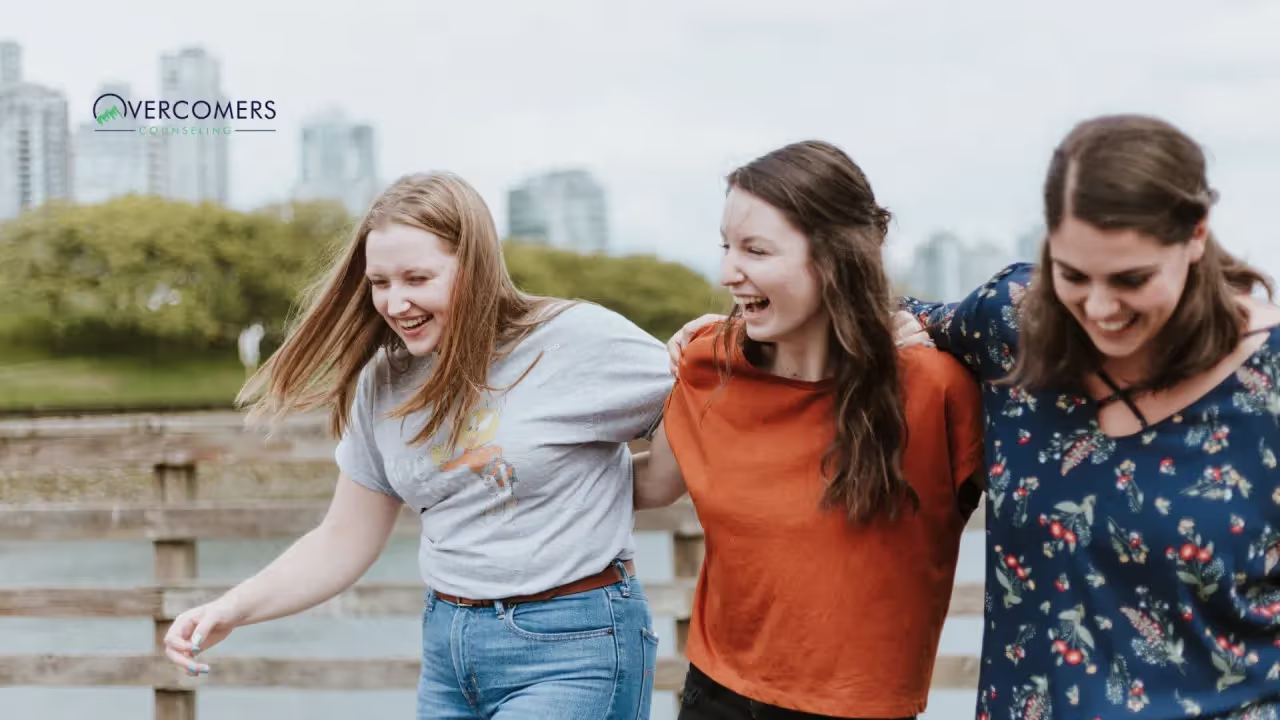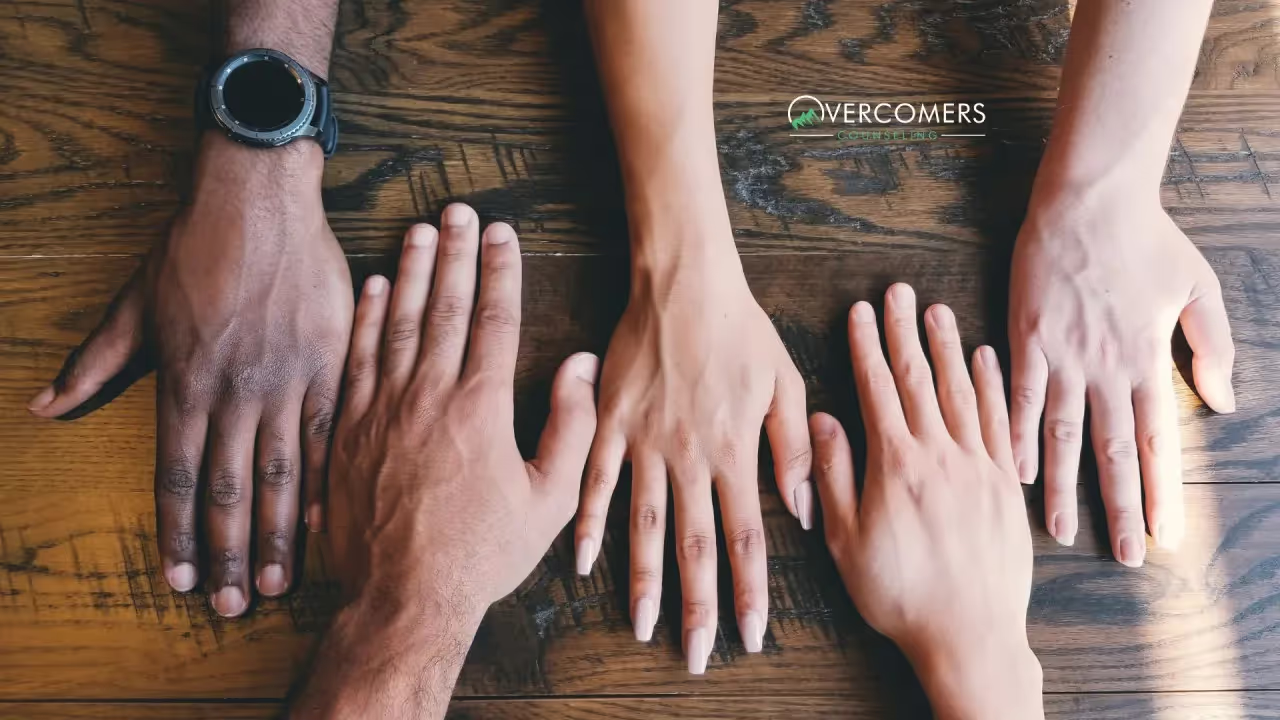Navigating the social landscape can often be a challenge for adults with ADHD. Misunderstandings, impulsivity, or difficulty maintaining focus can sometimes...

Navigating the social landscape can often be a challenge for adults with ADHD. Misunderstandings, impulsivity, or difficulty maintaining focus can sometimes lead to strained relationships and social anxiety.
However, it's crucial to remember that social skills, much like any other skills, can be improved with practice and the right strategies.
In this article, we will explore seven actionable ideas designed to enhance social interactions and foster stronger connections for adults with ADHD.
From understanding the nuances of body language to seeking support from loved ones, these tips aim to provide a roadmap for a more fulfilling and socially engaged life.
So whether you're an individual with ADHD or someone looking to support a loved one, let's dive into these practical suggestions together.
Social Skills Training Groups are structured environments where individuals can learn and practice social skills.
These groups are often led by a trained professional, like a psychologist or a therapist, who provides guidance and feedback.
The group setting allows participants to interact with others who face similar challenges, creating a supportive and understanding atmosphere.
Joining a Social Skills Training Group can significantly improve social interactions for adults with ADHD.
Firstly, these groups provide a safe space to learn and practice new skills without fear of judgment.
They focus on teaching essential skills such as active listening, appropriate self-disclosure, expressing empathy, and managing conflicts.
Furthermore, participants can receive real-time feedback on their interactions and behaviors, helping them to make immediate improvements.
Over time, these learned skills can greatly enhance the quality of social interactions in their everyday life.
Cognitive Behavioral Therapy (CBT) is a type of psychotherapy that helps individuals understand how their thoughts and feelings influence their behaviors.
It's highly effective in treating a range of disorders, including ADHD. CBT focuses on identifying negative thought patterns and developing strategies to overcome them.
CBT can be particularly helpful for adults with ADHD in improving their social skills.
It can help them understand how their thought patterns might contribute to social difficulties, and then work to change these patterns. CBT can also teach practical skills like conversation management, dealing with social anxiety, and understanding social cues.
The goal is to create a more positive social interaction experience.
Role-playing is an effective method for improving social skills as it allows individuals to practice and refine their interactions in a controlled environment.
Simulating real-life scenarios gives individuals the chance to navigate social situations, understand different perspectives, and experiment with various responses.
Numerous scenarios can be role-played to enhance social skills. These could include initiating a conversation, dealing with conflict, asking for help, or expressing disagreement respectfully.
Other scenarios might involve managing emotions during social interactions, understanding non-verbal cues, or practicing active listening.
The selection of scenarios can be tailored based on the individual's specific social challenges and areas they wish to improve.
Mindfulness and meditation are powerful tools for improving social skills.
They promote self-awareness, which is crucial in understanding one's own emotions and reactions during social interactions.
This heightened self-awareness can lead to better emotional regulation, reduced anxiety, and increased empathy towards others - all of which are key components of successful social interactions.
Furthermore, mindfulness practices can help individuals stay present during conversations, leading to improved listening skills and more meaningful connections with others.
Regular meditation can also reduce stress and improve focus, which can further enhance one's ability to engage socially.

Regular exercise can increase self-confidence, helping individuals feel more comfortable in social situations.
It also promotes better sleep and improves overall well-being, which can have a positive impact on one's ability to interact socially.
Activities that combine physical exercise with social interaction can be particularly beneficial.
These could include team sports, group fitness classes, or outdoor activities like hiking or cycling in a group.
Even simple daily activities like walking or jogging with a friend can provide an opportunity for social interaction while also promoting physical health.
Effective communication is at the heart of successful social interactions. It facilitates understanding, helps build relationships, and allows for the expression of thoughts and feelings.
Poor communication can lead to misunderstandings, missed opportunities, and strained relationships.
To enhance communication skills, individuals can practice active listening, which involves fully focusing on the speaker, avoiding interruptions, and responding thoughtfully.
It's also important to be clear and concise in expressing one's thoughts an
d feelings. Non-verbal cues, such as maintaining eye contact and using appropriate body language, can also significantly impact communication.
Lastly, practicing empathy and respect for others' viewpoints can greatly improve the quality of social interactions.
Friends and family play a crucial role in social skill development.
They provide safe environments for individuals to practice and improve their social interactions.
Feedback from these trusted people can be invaluable for recognizing and correcting social missteps.
Loved ones can support social skill improvement by providing constructive feedback, encouraging practice, and modeling effective social behaviors.
They can also offer emotional support and reassurance during challenging social situations. In addition, by including the individual in various social activities, loved ones can provide opportunities for real-world practice of social skills.
In conclusion, while ADHD can present unique challenges in social interactions, it's important to remember that everyone can learn and grow.
With understanding, practice, and the right strategies, adults with ADHD can enhance their social skills, foster deeper connections, and navigate social situations more confidently.
Whether it's improving communication skills, seeking support from loved ones, or understanding body language, these actionable tips offer a starting point toward a more socially fulfilling journey.
Remember, progress may be gradual, but every step taken is a stride toward improved social well-being.
Women with high functioning ADHD may appear to manage their symptoms well but still struggle internally. They may have successful careers but struggle with time management, organization, and maintaining social relationships.
No. We DO offer counseling (talk therapy) or medication management for individuals with ADHD or ADHD type symptoms. If you are looking for a formal evaluation involving extensive testing, you will need to seek a Psychologist.
Untreated ADHD in women can lead to low self-esteem, mood swings, and difficulty focusing. It can also increase the risk of eating disorders, substance abuse, and other mental health issues.
While not listed as a core symptom in the Diagnostic and Statistical Manual, research suggests that emotional dysregulation is a common and impactful aspect of ADHD.
Inattentive type ADHD is characterized by difficulty paying attention, forgetfulness, and disorganization. Women with this type of ADHD may struggle with completing tasks, following instructions, and maintaining focus.
Yes, both children and adults with ADHD can experience emotional dysregulation. However, the manifestations may differ, with adults often having more complex processes and coping mechanisms.